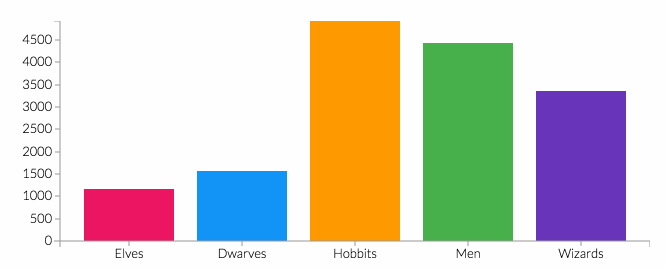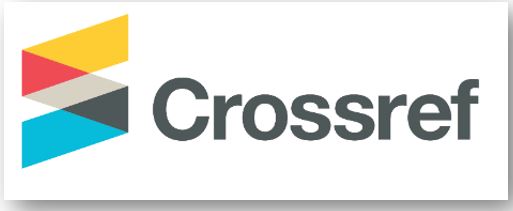Integrasi Pendidikan Agama Islam dan Teknologi Informasi: Penanaman Etika Digital Siswa Sekolah Dasar Menuju Generasi Berkarakter di Era Society 5.0
DOI:
https://doi.org/10.61231/e7x5dy56Keywords:
PAI, TIK, Etika Digital, Karakter, Society 5.0Abstract
The Society 5.0 era demands the integration of digital literacy and religious character formation at the elementary school level. This study aims to analyze the role and model of integrating Islamic Religious Education (PAI) and Information and Communication Technology (ICT) in cultivating students’ digital ethics. Using a qualitative case study method at SDN Ngablak 1 Kediri, data were collected through interviews, observation, and documentation. The findings indicate that Islamic values such as trustworthiness (amanah), responsibility, and digital etiquette significantly shape students’ ethical awareness in using technology. The integration of PAI–ICT was implemented through digital project-based learning, teacher role modeling, and school–parent collaboration in monitoring students’ digital behavior. Conceptually, this synergy represents an adaptive Islamic education model that harmonizes technological advancement with moral values. The integrated PAI–ICT approach contributes to developing a digitally literate yet ethical and character-driven generation in the Society 5.0 era.References
Eryandi. (2023). Integrasi Nilai-Nilai Keislaman dalam Pendidikan Karakter di Era Digital. Kaipi: Kumpulan Artikel Ilmiah Pendidikan Islam, 1(1), 12–16. https://doi.org/10.62070/kaipi.v1i1.27
Habibulloh, M., & Ali, H. (2024). Strategi Pendidikan Islam di Era Digital. JMPI: Jurnal Manajemen, Pendidikan Dan Pemikiran Islam, 2(2), 70–88. https://doi.org/10.71305/jmpi.v2i2.27
Heriyanto. (2018). Thematic Analysis sebagai Metode Menganalisa Data untuk Penelitian Kualitatif. Anuva: Jurnal Kajian Budaya Perpustakaan Dan Informasi, 2(3), 317–324. https://doi.org/10.14710/anuva.2.3.317-324
Izzah, N., Nuraini, S. H., Abyan, S., Syafi’i, I., Ariyanti, W. D., & Haq, Z. Z. (2025). Tantangan dan Strategi Kompetensi Guru Pendidikan Islam dan Adaptasi Teknologi dalam Penguatan Nilai Spiritual. DIKSI: Jurnal Kajian Pendidikan Dan Sosial, 6(2), 114–121. https://doi.org/10.53299/diksi.v6i2.1567
Juliani, Selpi Trianda Sari, Prilintan Gita Aulia, Yuni Siti Azwari, & Rendy Prayoga. (2024). Teachers’ Practical Approach in Embedding Islamic Values in Students’ Daily Activities. Journal of Contemporary Gender and Child Studies, 3(1), 147–153. https://doi.org/10.61253/jcgcs.v3i1.275
Mahmudi, M. A., Isnaini, & Susaldi. (2024). Pembelajaran di Era Society 5 . 0. PT. Mifandi Mandiri Digital Redaksi.
Nisa, K., & Amanda, N. (2021). Kolaborasi Pendidik Dan Peserta Didik Dalam Mewujudkan Digitalisasi Dan Penguasaan Teknologi Pada Pembelajaran Abad 21. Jurnal Basicedu, 7(3), 1433–1445.
Nuryanto, I. L., & Daniswari, H. P. (2023). Identifikasi Tentang Etika Digital Peserta Didik Di Sekolah Dasar Iis. Jurnal Bimbingan Dan Konseling, 7(3), 656–661.
Putra, A. A., & Yunianika, I. T. (2025). Rethinking Islamic Education in the Digital Age: Toward a Philosophical Framework for Cyber-Based Distance Learning. Alhamra Jurnal Studi Islam, 6(1), 105–121. https://jurnalnasional.ump.ac.id/index.php/Alhamra/article/view/26670%0Ahttps://jurnalnasional.ump.ac.id/index.php/Alhamra/article/download/26670/9072
Ridlo, U. (2023). Metode Penelitian Studi Kasus: Teori dan Praktik. In Publica Indonesia Utama. https://notes.its.ac.id/tonydwisusanto/2020/08/30/metode-penelitian-studi-kasus-case-study/
Rifqi, A., & Fitriani. (2024). Jurnal basicedu. Jurnal Basicedu, 8(1), 54–60.
Risdayanti, Achruh, A., & Rosdiana. (2025). Respons Guru dan v Kompetensi di Era Digital. Socius: Jurnal Penelitian Ilmu-Ilmu Sosial, 2(11), 592–596.
Salmin, Arnaningsih, Y., Nurhayati, A., & Humaidin. (2025). Strategi Integrasi Pendidikan Agama Islam dengan Teknologi Digital untuk Meningkatkan Pemahaman dan Pengamalan Siswa di Sekolah. V, 5(1), 222–236.
Downloads
Published
Issue
Section
License
Copyright (c) 2026 Frafasta Yafithufail, Mas’ady Ashabul Kahfi

This work is licensed under a Creative Commons Attribution 4.0 International License.
You are free to:
- Share — copy and redistribute the material in any medium or format for any purpose, even commercially.
- Adapt — remix, transform, and build upon the material for any purpose, even commercially.
- The licensor cannot revoke these freedoms as long as you follow the license terms.
Under the following terms:
- Attribution — You must give appropriate credit , provide a link to the license, and indicate if changes were made . You may do so in any reasonable manner, but not in any way that suggests the licensor endorses you or your use.
- No additional restrictions — You may not apply legal terms or technological measures that legally restrict others from doing anything the license permits.
Notices:
You do not have to comply with the license for elements of the material in the public domain or where your use is permitted by an applicable exception or limitation .
No warranties are given. The license may not give you all of the permissions necessary for your intended use. For example, other rights such as publicity, privacy, or moral rights may limit how you use the material.














